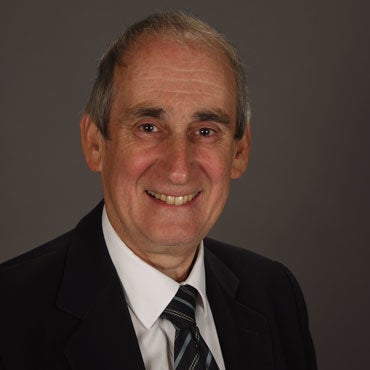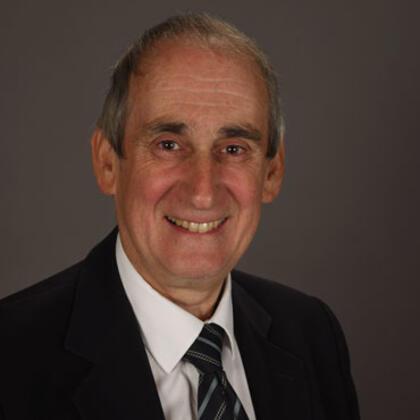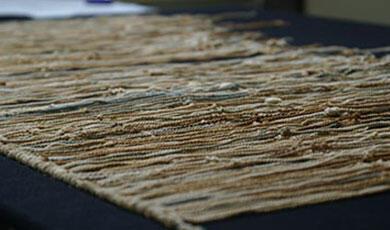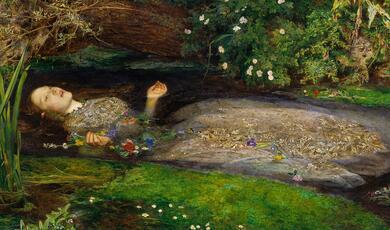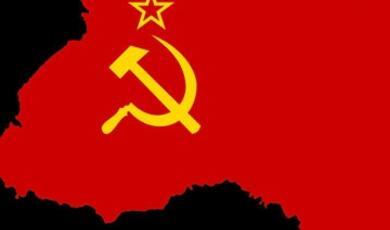Sir Thomas Gresham and the New Learning
Share
- Details
- Text
- Audio
- Downloads
- Extra Reading
Sir Thomas Gresham founded his College in 1597 in order to promote the New Learning of Elizabethan times. What was this, and what relevance does it have to training and education today?
Download Text
THOMAS GRESHAM AND THE NEW LEARNING
Professor Tim Connell
Gresham College with its range of subjects and professors needs to be seen in the context of the age in which it was founded in order for its role to be understood today. The second half of the Sixteenth century was a time of flux and major change. In terms of education there was an awareness that both abstract learning and formal training needed to be developed in support of trade in particular. The Statute of Labour, passed in 1562, set up a system of national apprenticeships. Manuals and even teach-yourself courses were popular, based on models imported from Italy. Schemes for the "advancement of universal learning" were also propounded. Sir Francis Bacon introduced the concept of experiment and observation and the use of evidence in his essays which were published in 1597, the year in which the College was founded. This practical approach to learning was to be taken up in due course by the Royal Society (which at one time planned to publish a history of trades along Baconian lines); Parliament (which invited the Czech thinker Comenius to England to establish a Baconian College of All the Sciences in 1641)[i]; and the plethora of popular speakers who gave lectures in the coffee houses that sprang up around the Royal Exchange in the Seventeenth and Eighteenth centuries.[ii] Known as "penny universities" they were a popular haunt of the so-called projectors (who are satirised by Swift in the College of Lagado in Gulliver's Travels)[iii] as well as the serious instrument-makers, the early scientists, the publishers and printers of St Paul's Churchyard who met to discuss such matters as measuring longitude, "or raising water by the impellant force of fire."[iv]
Sir Thomas Gresham provided for the creation of seven chairs at his College: astronomy, divinity, geometry and music (appointed by the Corporation of London); and law, physic and rhetoric, to be appointed by the Mercers' company. A lecture was to be given every day (in English and Latin) by the professors who were to be residential and (until 1767) celibate, in return for a stipend of £50 which was more than regius professors were paid at the time.[v] Sir Thomas left his house in Bishopsgate for use by the College and endowed it with an income from his other great foundation, the Royal Exchange.[vi] In those practical respects he was in advance of other people who contributed ideas (but not resources) to the educational debate. John Milton, in his Letter on Education (1644) addressed to the puritan thinker Samuel Hartlib, put forward a whole scheme for education to run from the age of 12 to 21, to be taught in academies throughout the land. John Aubrey in his Idea of Education (drawn up between 1669 and 1684) proposed the creation of seven aristocratic academies, to teach Latin and Greek, logic, rhetoric and ethics; arithmetic and geometry; law, politics and economics - plus a period of study abroad. John Locke was appreciated by his friends, for whom he drew up programmes of education for use with their children. In Some thoughts concerning education (1693) he advocates the study of geography, history, maths (including "chronology"), law and philosophy. Languages are included as a preparation for the Grand Tour, as is "riding of the great horse".[vii]
For several hundred years, the Mediaeval universities had been content to offer their degrees in two parts - the Trivium and the Quadrivium. Our word "trivial" comes from here, though the study of Grammar, Rhetoric and Logic sounds anything but that. It is an early example of the cross-European curriculum which is now commonplace in Europe with programmes like ERASMUS. The higher level of study, the Quadrivium, covered four subjects: Maths, Geometry, Astronomy and Music. Sir Thomas may have stressed the need for the New Learning, but his own horizons had been fixed by what he himself might have studied.[viii] He still took Rhetoric from the Trivium, plus Astronomy, Geometry, and Music from the Quadrivium. Law, Physic (Medicine) and Divinity were the key mediaeval professions, which might have prompted his choice, suggesting that he had a professional audience in mind. The Gresham curriculum must have looked positively vocational in the Seventeenth and Eighteenth centuries, while still being rooted in the principles of what had gone on before.
The Eighteenth century is not viewed as a high period for the English universities, although those in Scotland seem to have flourished, and it was common for people to go to the Low Countries to study in places like Leiden or Utrecht. London, however, always did show concern for vocational training. The Livery Companies had their apprentices and have since become major educational benefactors; it would be envidious to name any in particular here, but their work ranges from the organisation of training in the traditional crafts and skills through to extensive support for colleges and universities. The RSA (Royal Society for the encouragement of Arts, Manufactures and Commerce) was set up in 1754 (in Rawthmell's coffee house in Covent Garden) to "embolden enterprise, to enlarge science, to refine art, to improve our manufactures and to extend our commerce", not so very different in aim from the initiatives of the Sixteenth and Seventeenth centuries and, in slightly more elegant tones, not dissimilar to many institutional mission statements today.[ix]
The Nineteenth century may be characterised by the search for practical qualifications, the formalisation of training, and the wider provision of education through the Ragged School Movement or the Board Schools whose celebrated London three-deckers, built to look like cathedrals (complete with a playground on the roof) created a demand for a practical form of higher education, encouraged by organisations such as the Society for the Diffusion of Useful Knowledge, founded in 1826.[x] This process encouraged the growth of the mechanics institutes (which grew into entities such as the Workers' Educational Association). The City of London contributed with the creation of the City and Guilds Institute in 1878 (which was originally housed in Gresham College) and the City Parochial Foundation set up five polytechnics (of which City University was not actually one). [xi] These steps towards a mass system of higher education also saw the creation of the Colleges of Advanced Technology in 1957 (City University did grow out of one of those) and the first wave of new universities with the Robbins report of 1963. Harold Wilson's "white heat of technology" debate drew attention to the importance of an accessible, modern education system providing students with the latest skills required in the marketplace, setting a pattern which is with us to this day.
The established universities in the time of Sir Thomas Gresham were retrospective in their views and often reactionary to the developing needs of commerce. Mathematics and Astronomy were viewed generally as subjects of increasing importance because of the needs of navigation in connection with trade. Ironically neither were key University subjects at the time: John Wallis, Savilian Professor of Mathematics at Oxford in the mid-seventeenth century looked back on the early days when his subject was regarded as "the business of traders, merchants, seamen, carpenters, surveyors of lands... and perhaps some almanack-makers in London."[xii] Private benefactions were widespread, with support being provided for centres of practical learning in particular, such as the mathematical branch of Christ's Hospital (then situated in the City near the Old Bailey) which opened in 1673. Public lectures were instituted by people like Sir Godfrey Copley who offered a medal and paid quite significant sums for public experiments (£40 in 1720 for example).[xiii] Their aims, again, tended to be practical rather than theoretical, epitomised by Andrew Yarranton's publication of 1677, England's Improvement by Sea and Land. Or How To Out-do the Dutch without Fighting.[xiv]
The emphasis in much of these activities was on participation and presenting new ideas for debate firmly in the public domain. The university system, however, became progressively less accessible. It is not so long since cohorts of students would supplicate for a degree and take whatever examinations were prescribed by an anonymous board of examiners, in sessions that were held once a year, with no possibility of re-sit, and a degree by aegrotat being the one small concession to humanitarian feeling. Access to learning was closed and controlled, witness the letter sent by the Master of Biblioll College, Christminster, to Jude Fawley in the obscure novel of the same name:
Sir: I have read your letter with interest; and judging from your description of yourself as a working-man, I venture to think that you will have a much better chance of success in life by remaining in your own sphere and sticking to your trade than by adopting any other course.[xv]
Charles Dickens felt excluded from the Latin lecture at Gresham. In 1860 he records:
I lighted upon an advertisement in a daily paper setting forth that the Gresham lectures for this Easter term would be given ... in the theatre of Gresham College in Basinghall Street, in Latin at twelve o'clock and in English at one... I presented myself at the Gresham College. A pleasant-faced beadle, gorgeous in blue broad-cloth and gold... was standing in the hall, and to him I addressed myself, asking where the lecture was to be given. "In the theatre up-stairs sir. Come at one and you'll hear it in English." "Isn't it given in Latin at twelve?" "Lor' bless you, not unless there's three people present, and there never is!" [xvi]
It is perhaps ironic that the original argument for giving lectures in Latin was to encourage the international standing of Gresham College. To quote the Ordinances:
It is very likely that divers strangers of foreign countries, who resorteth thither and understand not the English tongue, will greatly desire to hear the reading of the said Lectures whereby the memory of the said Founder in erecting the said College for the increase of learning may be divulged to the good example of foreign nations and the honour and credit of this honourable City.[xvii]
How appropriate then, that our modern universities do indeed attract divers strangers of foreign countries under the more prosaic heading of "international students", and exclusion and exclusivity in education are becoming increasingly untenable for both political and economic reasons. Governments need a trained workforce. People have aspirations to learn, as per Jude's defiant scribbling of Job chapter xii verse 3 on the wall of the College that had rejected him:
I have understanding as well as you. I am not inferior to you:
yea who knoweth not such things as these? [xviii]
Higher Education traditionally implies that there is a lower level of learning, which is less prestigious and less valuable. It even suggests that learning may terminate at a lower level, or that there is a level beyond which one should not aspire. No advanced economy in the modern world can contemplate such a prospect now if its workforce is to possess the skills necessary for it to maintain a competitive edge. The rigid syllabus and frequent formal testing of the Board Schools (of the sort where Sue Brideshead and Phillotson would have taught in London) served its purpose when learning could be started (and stopped) at appropriate levels. Any educated person (in the words of Elizabeth Barrett Browning) knew "by how many feet Chimborazo outsoars Tenerife."[xix] [8430 feet, of course.] Learning can also be shown superficially by asking predictable questions, which lead nowhere. Think of the Oxford physics candidate who was asked, "What is the speed of light?" Back came the reply (quick as a flash), "186,000 miles per second." The next question was the clincher: "Yes, yes, but do you consider this to be adequate?" In such a system the teachers have the answer, placing themselves firmly in control of the learning process, which will follow a fixed and pre-set path. Expectation can be quite rigid in familiar phrases such as "That is not quite the answer I was looking for..." or "I suppose that what I was really asking was this..." Facts may be paid out or held back as required, which is perhaps feasible in a world where knowledge is known, finite and agreed, as in the training syllabus for a professional body. The percentage of failures in professional examinations is well-known and recognised (if not notorious) but on the other hand what is the likely career path of a pilot with a third-class degree in navigation? We must recognise that there are still areas where standards are absolute.
We now live in an age which has moved from the need to know to the right to know. It is progressively harder to deny access to information. The 30-year rule is no longer viable in the age of the photocopier or instantaneous multiple transmission worldwide via the Net. Are accurate records now possible in the age of the shredder? Sources become ever more important as the teacher is no longer the primary source of knowledge, but has taken on a more strategic role in offering a choice of appropriate methods for the learner and acting more as an adviser, directing or leading the study programme. Students may even negotiate the syllabus they are to follow, although the controversies about the appropriate canon for English Literature, or what constitutes the proper study of History are indicative of the complex political and social environment in which Education finds itself today.
There always have been approved sources - for example, the books published under the Ancien Régime avec privilège de roi or those which were controlled by the Index Librorum. In the City the Stationers Company burnt banned works in the time of Queen Mary (who also set fire to the occasional liveryman as well) and Company had a copyright registration role until 1911.[xx] In this more secular age, the Freedom of Information Act, spurred on no doubt by the psychological changes wrought by the Data Protection Act, has provided insights at least into the work of Government and public bodies. It is harder and harder in today's world for information to be contained, as net-users know to their cost when they write a private note to someone, but hit the group distribution button by mistake and share their innermost thoughts with 7000 other people worldwide. The new technology places information irrevocably in the public domain, however embarrassing this may be for individuals, and the recurring losses of confidential government data will probably continue, though more sophisticated encryption might add some additional protection.[xxi] Nor will governments succeed in controlling the flow of electronic data worldwide (as some try to do). Sub-comandante Marcos of the Zapatista Front in Chiapas broke new ground in the 1980s with a modem and net link using the cigar lighter point in his jeep. Details of Mexican army activities were known to sympathisers (and complete strangers) all over the world and within thirty minutes Mexican embassies were being bombarded with faxes in protest at the use of the army against civilians in specific native villages.[xxii] If colour TV lost the Vietnam War for the Americans, then battery-driven PCs with dongles and memory sticks will ultimately be uncontainable by any regime or government, however hard they will undoubtedly try.
The growth in modern technology is symptomatic of the speed of change as the spiral of knowledge turns into an exploding nebula, increasing the volume and range as well as the depth of our knowledge at a pace which is difficult for the human eye to follow. Constant updating is not the least of our problems. The Modern French paper at Oxford in the early 1960s covered the period 1715-1945. The insertion (eventually) of the phrase "to the present day" means that students can now enrol on a course and by their final year have to study a work that has not yet been written, let alone published. The speed of change means that new ways have to be found of managing it. Horizons are much wider. There is now reckoned to be a five-year cycle for updating work skills, so providing training for jobs that have not yet even been created is quite difficult and training the trainers in advance of that is virtually impossible. If Business cannot forecast with complete accuracy over such a period then how can it expect to know what its skills requirements are likely to be? After all, the City did not see the sub-prime crisis coming any more than the CIA foresaw the expansion of Russian peacekeeping activities in Georgia.
Responding to change is not unique to our own age, although the management of change at its present speed probably is. Educational outreach in Britain goes back to the mechanics institutes of the last century which in turn formed the backbone of the redbrick universities. The great university reformer Jowett of Balliol College advocated setting up ten feeder institutions for Oxford around the country. That did not happen, but the extra-mural activities that followed were to establish quite a pedigree, drawing support from people like Lloyd George and attracting tutors that included Hilaire Belloc, T S Eliot, Sir Arthur Evans and Lord Longford.[xxiii]
Sir Thomas saw the New Learning as a focus for debate and encounter. His subjects were a streamlined version of what had gone before. He was aiming at post-experience mature returners, evidently; there were no undergraduates in London at the time, so there was no call for the Trivium. This was not a scheme for a crammer or an Oxbridge outstation, even though Gresham's old college in Cambridge (then Gonville Hall) did consider the idea. Sir Thomas was wanting to get at local people - City residents and workers, not unlike the City Corporation today. What Sir Thomas offered were two things close to the heart of any self-respecting university: not a good student bar and squash courts, as you may imagine, but (like any modern organisation) space and a budget. Academic independence was on offer within accepted frameworks (Divinity was specifically intended to support the tenets of the Church of England.) But the aim was also to challenge.
The broad-based appeal of the original Gresham College is an early example in fact of targeting mature returners and offering programmes in continuing professional development. Sir Thomas did rather hope that his College would become a university. Samuel Hartlib proposed (in a very modern way) to create a University in London by merging Gresham College with a number of other institutions.[xxiv] It was for a time an informal extra-mural centre for the University of Oxford through the connections between Dr Wilkins's group at Wadham College during the Commonwealth and which gravitated to London at the time of the Restoration. This group attracted the leading scientific minds of the age, some of whom (like Wren) are universally known, and others (like Hartlib) almost entirely forgotten. These meetings were originally referred to as the Invisible College in that it represented a school of thought or opinion rather than a physical institution before it grew into the Royal Society. Thomas Sprat, in his history of that institution (written in 1667) comments on
Gresham College, where by the munificence of a Citizen, there have been Lectures for several Arts endow'd so liberally, that if it were beyond Sea, it might well pass for an University.[xxv]
The Royal Society developed and grew away from Gresham College which, however, succeeded in maintaining its own identity, despite further attempts at the end of the last century to use it as the core for a new University in London. It has maintained its profile, based on having lots of professors and no students, an idea which has some appeal given the growth of the University sector in recent years. Such single-minded autonomy may well be the key to this College's proper purpose today. The demand for more university places (as in the 1620s, 1880s and 1960s) has forced numbers up in UK universities by about 40%; resources from government have been
cut in real terms by the same percentage, whilst globalisation has added significantly not only to student numbers but also the subjects that they intend to study. And that would create pressure on any system.
Continuing Professional Development today is reflected in up-skilling, re-skilling and even out-skilling. New methods, techniques and styles have been introduced in everything ranging from good practice to the nature of the product. Political and economic factors have had their part to play, but there is still a lack of consensus in this tentative age as to what constitutes education and training. The constant flux in education policies since Robbins is perhaps symptomatic of this. How to project the needs of the market in seven years' time becomes a crucial question, when today's top primary children go out into the job market or choose their route through higher education. Yet strangely enough it is not always possible to predict accurately the size of the year group, let alone what employers' needs will be or what the job market will demand. And the short-termism which has so bedevilled business and industry means that employers do not know what their particular needs will be and will not invest in training to the extent that they did when five-year apprenticeships and sandwich courses were the norm.
This then becomes a problem for educational planners, personnel managers and trainers, and a temptation for politicians to meddle in an attempt to attract the popular vote through constant alterations to teaching, learning and testing, of which the newly launched vocational diplomas are but the latest example. Learning versus training, a liberal education versus the needs of the utilitarians, are debates which have never been fully resolved. Sherlock Holmes provides us with an interesting Victorian case study. Dr Watson (like Conan Doyle, a graduate of a Scottish University, of course) assesses him sternly:
Philosophy, astronomy and politics marked at zero. Botany variable, geology profound as regards the mudstains from any region within fifty miles of town, chemistry eccentric, anatomy unsystematic, sensational literature and crime records unique, violin player, boxer, swordsman, lawyer, and self-poisoner by cocaine and tobacco.
(Watson might have added that Holmes could quote Goethe in the original and having a French grandmother was quite possibly fluent in French.) Holmes is unrepentant about his learning style:
I say (...) that a man should keep his little brain attic stocked with all the furniture that he is likely to use, and the rest he can put away in the lumber room of his library, where he can get it if he wants it.
He also points out how important it is for someone to have "a possession of all knowledge which is likely to be useful to him in his work, and this I have in my case endeavoured to do." [xxvi] Holmes evidently was not keen on a liberal education, and seems to have built up specific skills based on his case studies, which would have made him an ideal candidate for some rather unusual NVQs. The practical philosophy of on-the-job training and clearly defined outcomes would doubtless have appealed to him and schemes such as the NVQ as a way of ensuring that people's effectiveness in their work is measured and the Government is setting great store by apprenticeship schemes and the new Vocational Diplomas to ensure that young people are better prepared for the world of work.
Would Gresham have set up now the Chairs that he did? Without wishing to engage in a balloon debate a few observations could be made: Physick, with Divinity and Law, constituted the three vocational streams of the Quadrivium. Medicine will always attract an audience. The decline of religious observance is a marked phenomenon in the last thirty years but this is not the first age to be secular in spirit. There is ample scope too for comment in an age of moral uncertainty or for raising questions of ethics in the age of the fat cats. The Inns of Court were one of the City's key centres for higher education and probably a focal point for intellectual thought. Law is a heavily subscribed subject at university today, and in fact students at the Inns of Court now take City University degrees. Astronomy in Elizabethan and Tudor times was a key subject in support of navigation and its value to commerce, and Gresham College was heavily involved in the search for the accurate measurement of longitude. With the firing up of the Hadron collider in Geneva the chair maintains its pre-eminence, not least with our current link to Jodrell Bank via our current professor, Ian Morison. Rhetoric, the traditional art of public speaking, now extends to cover such themes as stylistics, poetics, pragmatics and semiotics and so could be applied to many areas, going beyond the abstract ideas of earlier times and can be brought to bear on rather more mainstream subjects like History or Literature, let alone topics such as World Englishes. Music would have been seen as practical, if not vocational, though its interpretation in the Sixteenth and Seventeenth centuries would not have reflected its varieties today. Geometry may be seen as rather narrow, but Mathematics is a key subject which is not given sufficient emphasis in English education, even though it is at the heart of new developments today, ranging from computing to quantum physics. Accountancy, of course, is an extremely popular subject at post-18 and probably forms the hard core of business training in this country, somewhat in contrast with practice on the Continent, where degrees in engineering are often the norm.
These subjects have always been open to re-interpretation to match the interests or needs of a particular age, hence the addition of the Mercers' School Chair of Commerce in modern times to reflect City interests. There is also scope for developing the international dimension to the work of the College to recognise the City's position as a world market-maker and the cosmopolitan nature of the Square Mile today. What does matter is to ensure that the new learning can continue to advance into the new Millenium. So I would propose the re-introduction of the Trivium and Quadrivium, only re-defined. The new Trivium will consist of Fresh Ideas; Space; and Financial Backing. For the new Quadrivium I would propose: Networking, Information Retrieval, Forward Projecting and Rightguessing, key skills (you will doubtless agree) in the present economic and financial climate. Much of this now goes on via the Internet, either through constant news updates or within discussion groups. Gresham College's presence on the Web is burgeoning, with over 3000 people a month downloading our lectures or watching them via the Web. Our Science Fiction Symposium in May attracted a live audience of 175 people, which was a good turn-out. But it also went out on fora.tv, where it attracted nearly 275,000 hits in just two months. Whatever the attractions of the Web, MP3 or cable TV, however, there still needs to be a space for people to challenge and be challenged, and there will always be a demand for lectures with the chance to ask questions, in the same way that there will always be a place for live theatre.[xxvii] However much the world is changing, there will always be aspects of learning which are pivotal. In the words of John Woodward, Gresham Professor of Physic, who took part in a Teaching Quality Assessment review in the 1720s:
There's hardly any part of useful knowledge that has not received great accessions from [Gresham College] ... In our persons, in our health, in the enlargement of our minds, in our strength by sea and land, as well as in our power and interest abroad.[xxviii]
With a student population today in excess of a quarter of a million people (who come from all over the world to study) the Greater London area hardly needs another University. But there is a role for an institution whose task is to create intellectual challenge, to bring people together and make people think; to create a focus for debate; to draw in people who have distinguished themselves in their own sphere to be professors, in order to share their knowledge and to bring their particular subject to the public eye in each successive age. The College can also play a role in encouraging the dissemination of new ideas. The period of the Renaissance introduced the New Learning; these ideas were taken on by the natural philosophers of the seventeenth century, based increasingly on observation and the practical solution of scientific problems. The eighteenth century was the age of the natural philosopher and the learned societies, which in turn made way for the sterling work of official bodies and the great philanthropists. We are now firmly in an age of widening participation, lifelong learning and mass higher education, dictated by the needs of a sophisticated workforce. The learning challenge of our particular age is how to face up to the chain reaction emanating from the explosion of knowledge and learning - and how to harness it.
What would Sir Thomas have made of today's world? He would undoubtedly have approved of the cosmopolitan nature of today's City, though as a respectable gun-runner himself he might have felt some strategic concern over the hegemony of non-English companies in the London market. As the leading businessman of his day he would have seen ample commercial opportunities and doubtless turned them to his own advantage. The ease and speed of communication he would have relished, given his discreet role as an Elizabethan spy. Gresham College now has a strong presence on the Internet and can be accessed worldwide. The 3 Rs of today's world are On-Line Working, Information Retrieval and Data Management. To that I would add what I would term the New Literacy - knowing how to use the most popular packages in your own professional area and understanding instinctively how to get into the new ones quickly and with a minimum of training. Plus knowing how to get the photocopier to print out on both sides and staple in one go at the first attempt. The other key skill is knowing where to look and how to look by means of novelties such as search engines, the only difficulty being that these will throw up references like "The three thousand best web-sites in Spain" and offer superficial insights to knowledge via sites like Wikipedia. There is a pressing need today for this tidal wave of information to be channelled, to enable people to share, be able to query and explain, develop new angles and engage in debate. That there is a demand for this may be seen in the number of blogs, home pages, notebooks and discussion groups that proliferate day by day.
It was common in the Eighteenth century for the merely interested to correspond with the absolutely eminent on matters of natural philosophy, and the Net allows us this facility again at the touch of the right button. We can even petition Downing Street on-line. Links between people and different organisations can be extensive, if at times tenuous, but we all have our own points of contact and lines of communication which go beyond formal work structures and which can provide us with sources of information, sounding boards for new ideas, and individual support. This is all part of the modern craze for networking, epitomised by the Internet, and which goes to build up not one, but many invisible colleges, in a whole range of individual dimensions.
There are elements here that would undoubtedly have attracted Sir Thomas Gresham: a virtual College located in cyberspace, bringing people into his beloved City from all over the world without even leaving their workplace or home, exchanging information and ideas freely, using minimal physical space and at relatively low cost. With the prospect of 200-channel digital television upon us, the sky really is the limit. But to make any sense, this information will need to be placed into some sort of framework for dissemination and further debate. Which is a clear aim and a worthwhile goal for any college. Sir Thomas would doubtless have approved, but in the words of John Flamsteed (Gresham Professor of Astronomy) in his lecture of 11th May 1681:
Haveing beene already too tedious tho I have spared and contracted my thoughts for want of Time hereafter wee may have occasion to make a farther inquiry." [xxix]
© Professor Tim Connell, Gresham College, 19 September 2008
[i]In the event the project was overwhelmed by political events. See Chambers' Biographical Dictionary.
[ii]See Ellis.
[iii]Jonathan Swift: Gulliver's Travels, 1726. Swift satirises the "projectors" for their bizarre experiments in part 3 chapters 5 and 6.
[iv]See L Stewart for a range of genuine experiments. The Routledge edition of Sprat also has some curious illustrations.
[v]Teague S J, 1980, page 190.
[vi]He perhaps hoped would bear his name, especially as his only son had died at the age of 20.
[vii]See Lawson & Silver page 173 for Aubrey and Axtell for Locke.
[viii]He only spent one term at Cambridge, at Gonville and Caius.
[ix]Its Examinations Board (the first to set national examinations in 1856) catered for 1.5 million candidates a year until its merger into OCR. See http://www.ocr.org.uk/index.html
[x]See http://en.wikipedia.org/wiki/Society_for_the_Diffusion_of_Useful_Knowledge
[xi]See Lawson & Silver. City & Guilds today make 1.5 million awards per year across 85 countries.
See http://www.cityandguilds.com
[xii]Lawson & Silver page 123.
[xiii]Stewart page 132.
[xiv]Stewart page 22.
[xv]Thomas Hardy, Jude the Obscure, OUP 1985 page 120.
[xvi] All The Year Round, volume 3, April - October 1860.
[xvii]In a case to counsel in Gresham Committee Minutes 20.10.1829.
[xviii]Thomas Hardy op. cit. page 121.
[xix]In Aurora Leigh. El Teide, the extinct volcano on the island of Tenerife stands at 12,077 feet, and Chimborazo, the highest volcano in the Andes, is 20,507 feet. The highest Andean mountain is, of course, Aconcagua in Chile, which goes up to 22,616 feet.
[xx]See http://www.stationers.org/
[xxi]This is not necessarily a new phenomenon. A code of morals in Kipling's Departmental Ditties chronicles the embarrassment that could be caused by sending private messages by heliograph.
[xxii] See http://news.bbc.co.uk/1/hi/world/americas/1214676.stm
[xxiii]In Oxford Today, Michaelmas 1996 page 30. For more on Jowett, see http://en.wikipedia.org/wiki/Benjamin_Jowett
[xxiv]Pepys notes, on February 1st 1663, that King Charles was laughing "... at Gresham College in general ... for spending time only in weighing of ayre and doing nothing else since they sat." See also Lawson and Silver page 160.
[xxv]See Thomas Sprat page 93.
[xxvi] The 5 orange pips, Penguin p.112. It is perhaps significant that Holmes received the Légion d'Honneur in 1894, but turned down a knighthood in 1902. See Study in Scarlet. Goethe is quoted at the end of The Sign of Four. See the OUP Selected Stories for biography.
[xxvii]Around 15000 people attend lectures at Gresham College each year.
[xxviii]See Winckworth page 8.
[xxix]In Forbes page 116.
This event was on Fri, 19 Sep 2008
Support Gresham
Gresham College has offered an outstanding education to the public free of charge for over 400 years. Today, Gresham College plays an important role in fostering a love of learning and a greater understanding of ourselves and the world around us. Your donation will help to widen our reach and to broaden our audience, allowing more people to benefit from a high-quality education from some of the brightest minds.


 Login
Login
